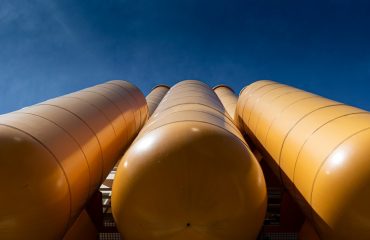In the world of industrial machinery, precision and reliability are paramount. Off-the-shelf components often fall short when faced with unique operational demands or specialized applications. This is where customized steel machine parts step in, offering tailored solutions that optimize performance, enhance durability, and extend the lifespan of your equipment. This comprehensive guide explores the intricacies of bespoke steel machine parts, from design considerations to the advantages they offer.
1. Designing Customized Steel Machine Parts: From Concept to Blueprint
The journey of a customized steel machine part begins with a thorough understanding of its intended application. This involves close collaboration between the client and the manufacturer. Detailed specifications, including dimensions, tolerances, surface finishes, and material requirements, are crucial. Advanced CAD (Computer-Aided Design) software plays a vital role in creating precise 3D models, allowing for virtual prototyping and the detection of potential design flaws before manufacturing commences. Finite Element Analysis (FEA) may also be employed to simulate real-world stresses and strains, ensuring the part can withstand the anticipated loads and operating conditions. This iterative design process guarantees a final product that meets – and often exceeds – expectations.
2. Material Selection: Choosing the Right Steel for the Job
The choice of steel is paramount in determining the performance and longevity of a customized machine part. Different steel grades possess unique properties, including strength, hardness, toughness, corrosion resistance, and machinability. Factors such as the operating temperature, the presence of corrosive environments, and the required load-bearing capacity all influence material selection. Common steel grades used for customized machine parts include: low carbon steel (for high ductility), medium carbon steel (for balance of strength and ductility), high carbon steel (for high strength and wear resistance), alloy steels (for enhanced strength and specific properties), and stainless steels (for corrosion resistance). The manufacturer’s expertise in material science is crucial in selecting the optimal steel grade for the specific application.
3. Manufacturing Processes: Precision Engineering for Bespoke Parts
The manufacturing process for customized steel machine parts varies depending on the part’s complexity and required tolerances. Common techniques include: CNC machining (for high precision and intricate designs), forging (for high strength and durability), casting (for complex shapes and large volumes), and 3D printing (for rapid prototyping and complex geometries). Each process has its own advantages and limitations, and the selection depends on factors such as cost, lead time, and the desired level of precision. Rigorous quality control measures are implemented throughout the manufacturing process to ensure the parts meet the specified requirements and maintain the highest standards of accuracy and consistency.
4. Applications of Customized Steel Machine Parts: Across Diverse Industries
Customized steel machine parts find applications across a vast array of industries. In the automotive sector, they are used in engine components, transmissions, and chassis systems. The aerospace industry relies on bespoke steel parts for aircraft structures and landing gear. The energy sector utilizes them in power generation equipment and oil and gas extraction machinery. Other industries such as construction, agriculture, and manufacturing also benefit from the superior performance and reliability of customized steel components. The versatility of steel, combined with the precision of modern manufacturing techniques, makes it an ideal material for a wide range of applications.
5. The Advantages of Choosing Customized Steel Machine Parts
Opting for customized steel machine parts offers several key advantages over off-the-shelf alternatives:
- Optimized Performance: Parts are designed specifically for the application, maximizing efficiency and performance.
- Enhanced Durability: Careful material selection and manufacturing processes ensure extended lifespan and reduced maintenance.
- Improved Reliability: Precise tolerances and rigorous quality control minimize the risk of failures and downtime.
- Cost Savings in the Long Run: While initial costs may be higher, the increased durability and reduced maintenance often lead to significant long-term cost savings.
- Unique Solutions for Unique Problems: Customized parts address specific challenges and overcome limitations of standard components.
- Competitive Advantage: Incorporating bespoke parts can provide a competitive edge by offering superior product quality and performance.
In conclusion, customized steel machine parts represent a strategic investment that delivers significant returns in terms of improved performance, enhanced reliability, and long-term cost savings. By partnering with a reputable manufacturer with expertise in design, material selection, and manufacturing, businesses can leverage the power of bespoke solutions to optimize their machinery and gain a competitive advantage in the marketplace.
Tags: customized steel parts, bespoke machine parts, steel machine components, precision engineering, industrial parts manufacturing




